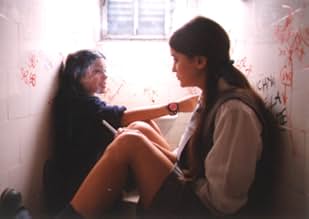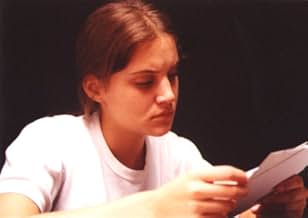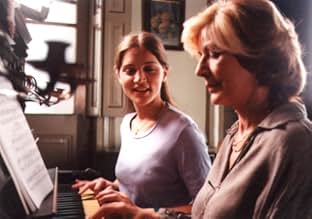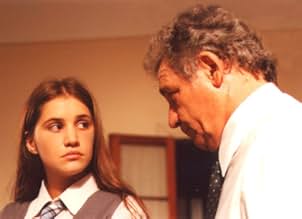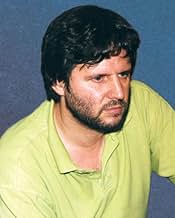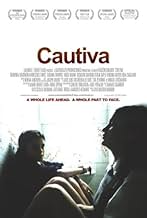Cristina's life is thrown into turmoil when she is suddenly escorted from her strict Catholic school in Buenos Aires and told that she is really Sofía Lombardi, the daughter of activists who... Read allCristina's life is thrown into turmoil when she is suddenly escorted from her strict Catholic school in Buenos Aires and told that she is really Sofía Lombardi, the daughter of activists who disappeared in the '70s. Questioning everything she once thought true, Cristina embarks o... Read allCristina's life is thrown into turmoil when she is suddenly escorted from her strict Catholic school in Buenos Aires and told that she is really Sofía Lombardi, the daughter of activists who disappeared in the '70s. Questioning everything she once thought true, Cristina embarks on a journey to find her true identity. Meeting others like herself, the young girl soon di... Read all
- Awards
- 5 wins & 13 nominations total
- Director
- Writer
- All cast & crew
- Production, box office & more at IMDbPro
Featured reviews
"Captive" complements the film "The Official Story" very well and emphasized the importance of historical memory, both for a country and for an individual. Cristina, like Alicia ("The Official Story"), is blissfully living in ignorance of the truth until someone else brings it to her attention. Both female characters are at first doubtful of the fact that so many people simply "disappeared". Their doubt then turns to belief and surprise that they didn't know earlier.
Cristina Quadri (the deeply impressive Bárbara Lombardo) lives with her parents in Buenos Aires, attending a Catholic girls' school, seemingly a happy young teenager. One regular day she is called to the principal's office and told she must visit a judge, a frightening concept for a young girl who is forced to go without informing her parents. The judge informs her that she is not 'Cristina Quadri' but instead 'Sofía Lombardi', the daughter of a couple who 'disappeared' in 1978 as political prisoners. A recent blood test Cristina/Sofia thought was a follow-up for a post-op check was actually a test to match her blood with that of the newly discovered true parents' family. Cristina, stunned by her lack of true identity, confronts her 'adopted parents' and struggles with the officials who insist she be returned to her blood relatives. Cristina becomes close to another 'adopted' girl and the two explore their roots, finding that they were born in prisons and then given to police officials to be placed in homes. The transition from adopted to blood family is the path the film explores: despite the comforts of present life the girls must know their origins to fully realize their identities.
The cast is uniformly strong, the concept of the film works well as Biraben snaps us back and forth between the World Cup Soccer Game in Buenos Aires in 1978 that contrasts so gravely with the concurrent underground disappearance of the intellects of the country, and the performance by Lombardo holds the credibility of the story well. There is a fine music score by José Luis Castiñeira de Dios that combines a suite for cello and piano with elements from Mozart's Requiem very effectively. This film has been awarded many prizes since its appearance in 2003: the prizes are justly deserved. Highly recommended viewing. Grady Harp
Set in a period about ten years before its release, but dealing with issues of the Argentine dictatorship and disappearances from the late 1970s, this is a remarkably realistic and important look at one girl's astonishing involvement with the worst of it.
And if it sometimes is terribly linear in its storytelling, following this girl's realizations one after another (and her emotional burden as it grows and grows), the movie is still so convincing and sad and filled with national (Argentine) guilt it is totally riveting. Anyone interested in the horrors of Latin American dictatorships (left and right wing) and in the victims and survivors, this is a must-see.
Anyone else just interested in the plight of a single sixteen year old girl in a whirlwind of suspicions and lies and a few seemingly tender sympathizers, and see her cope and rise above and maybe, in fact, find a small amount of truth for herself, this is also really rewarding. You might find parallels in similar South American films such as "Machuca" but there is also a weird resemblance to many touching holocaust films that center on the plight of children whose identities get changed and whose histories are disrupted. Not to mention the tragedy of parents killed by cruel governments.
The filming here is really good but never something you'd notice (except one brief dream scene). What you will notice is the gravity and depth of the lead girl's performance. Barbara Lombardo was only 14 for filming (unlike a lot of movies where older girls play younger parts) and she alone makes the movie poignant and serious.
Oddly, this is officially a 2005 movie with its original Spanish title, and yet it gets listed here as "Captive" with a 2004 date. There is a lot left unsaid here, but in a way that's sufficient. It makes you want more.
Did you know
- TriviaA statement at the end of the film reads "Those responsible, except for a few cases of house arrest, are free." This changed on July 5, 2012, when the first sentences for baby theft from political prisoners during the 1976-1983 "dirty war" were handed down. The longest went to former leader Jorge Videla, who was found criminally responsible for overseeing the systematic theft of babies, and given the maximum sentence of 50 years in prison.
Details
Box office
- Gross US & Canada
- $16,259
- Opening weekend US & Canada
- $2,220
- Nov 12, 2006
- Gross worldwide
- $16,259
- Runtime1 hour 55 minutes
- Color
- Sound mix
Contribute to this page



